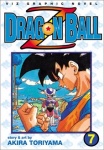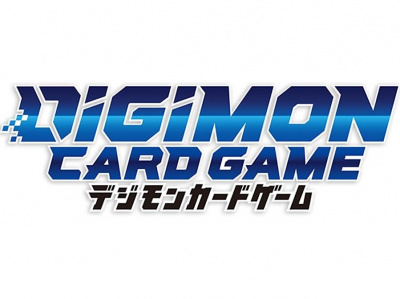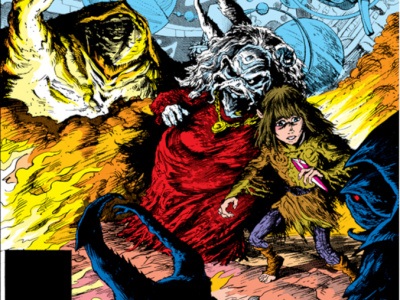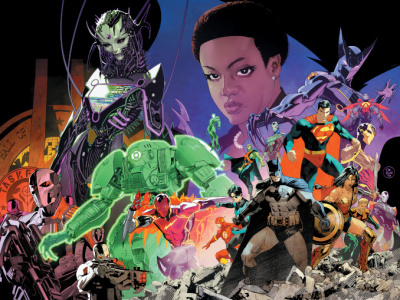
All three of the largest US manga publishers told ICv2 that sales are booming for manga trade paperbacks. Tokyopop VP Sales and Marketing Steve Kleckner said, 'It's a tremendous time of growth in the industry. You can feel it and you can see it.'
Triple digit growth rates for manga trade books were the norm last year, with Viz reporting that sales tripled in 2001 vs. 2000 (excluding Pokemon), Dark Horse reporting 2001 sales 2.3 times its 2000 numbers, and Tokyopop a doubling of sales in 2001. Among the top sales numbers we heard: Dragon Ball Z trade paperbacks shipping 30,000 copies in the first wave of shipments, and the higher-priced Akira trades shipping 22-25,000 copies in the first wave.
Although sales in both bookstores and pop culture stores are growing rapidly, the growth rate is higher in bookstores. For example, Dark Horse manga trade paperback sales grew 290% in bookstores vs. 216% through Diamond in 2001 vs. 2000. And the proportions of sales are also heavily tilted toward the book trade. Only around 11% of the initial Dragon Ball Z trade paperback shipments go to comic stores, for example, the rest go to bookstores. Tokyopop's Kleckner said, 'In the book trade, anime is a #5 category, but it's a category. Six months ago there was no section, but I will have it this year.'
Viz Senior Marketing Manager Dallas Middaugh told us he thought the reason for the rapid growth was television exposure. 'Both kids and adults are getting into it on TV, and that gets them exposed to lots of good products from many companies,' he said. 'Then we have to give them a place where it's comfortable to go and buy this stuff. Right now that's Barnes and Noble, Waldens, and Borders.' The visibility and accessibility of chain locations is the primary reason why they become the first sources of manga books for new consumers.
Waldens was cited by all three publishers as a chain that was especially strong at handling manga. One of the factors that is probably a reason for its success is that Waldens is primarily in mall locations, and the mall kids are now heavily into anime, and by extension, manga. This group has also been cited as those consumers adopting the right to left format most enthusiastically (see 'Manga Left to Right--Will It Fly?').
Despite these high-powered growth rates, some of the manga publishers are expressing concerns about the number of releases scheduled to come out in 2002. With every publisher increasing production, and Tokyopop soliciting as many as a dozen new manga trade paperbacks a month, a massive increase over its 2001 production, the market is going to have to increase rapidly to maintain sales per title. For example, Middaugh said he was worried about a manga glut. 'I have to question this 'get it done as fast as you can and get it out to market' approach,' he said. 'This is a market we want to grow, but not by pushing out as much product as we can get our hands on. It's very important to select the best quality books and produce them in the highest quality format.'
Shawna Ervin-Gore, Press and Publicity Coordinator at Dark Horse, was also pushing discrimination in purchasing. 'I would warn against retailers allowing themselves to get swept up in a complete 'manga madness' and flooding their shelves indiscriminately with anything that fits the manga bill.'
Both Viz and Dark Horse are expecting slower growth rates in 2002, with Middaugh saying that Viz was projecting 75% growth in the market for manga trade paperbacks, and Dark Horse VP Sales and Marketing Michael Martens saying only that it was expecting slower growth in 2002 than its 130% growth rate in 2001.
While Tokyopop's Kleckner acknowledged that the number of manga trade paperbacks was going to increase faster than the market for them in 2002, he was the most bullish about the year. He said that the initial orders for Tokyopop's manga collections were running five to six times what they were a year ago, '...both from channel expansion and because more retailers in the channels we've been in are giving it more realistic support.' He downplayed concerns about a glut, saying, 'That happens in every industry. In the movies it's 'the other guy puts out too much product.' But there's always room for good product.' And he was happy with the shelf space Tokyopop titles were getting. 'We're concentrating on bringing in quality -- bigger and bigger licenses like Initial D and Real Bout High School,' he said. 'We're not finding any problem getting on shelves if it's a known license with an existing fan base. And we're also doing anime and soundtracks to feed the properties.'
Dark Horse's Ervin-Gore had some advice for retailers faced with an increasing number of titles with which they might not be familiar. She suggested that retailers inform themselves by '...paying attention to industry sales figures to see which titles sell on a consistently strong basis, and engaging in direct dialogue with their customers to make sure the titles they're carrying are the titles consumers want to buy.'
One potential area for expansion is further growth in the number of channels where manga titles are distributed. To date, manga sales have been concentrated in pop culture stores and in bookstores. This year, expect to see other major channels added to the list. The degree to which manga are distributed in new mass merchant and specialty retail channels, and how well they sell there, will determine whether the market can absorb the planned increases in output at the publisher level in 2002.







